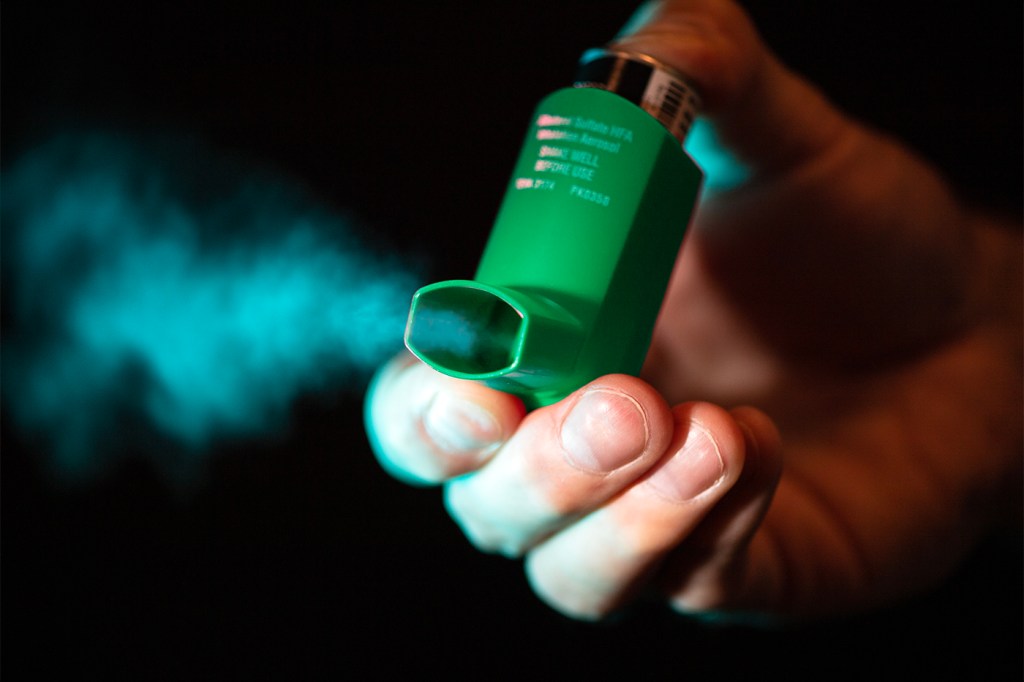Can you overdose on over-the-counter allergy medication?

The arrival of June means the plumes of tree pollen that have set off millions of sneezes this spring are giving way to an equally intense outpouring of grass pollen.
Will the remedies seasonal allergy sufferers rely on for relief hold up to the newest onslaught of respiratory irritants?
It’s not unusual for people to have to add to or switch up their medications for seasonal allergies, says Mansoor Amiji, distinguished professor pharmaceutical science and chemical engineering at Northeastern.
But with climate change extending and intensifying seasonal allergy seasons, there is a concern that people seeking added relief will “self titrate” by increasing doses of over-the-counter medication without consulting a physician or pharmacist first, Amiji says.
“Depending on symptoms we have, we tend to either over-medicate ourselves or under-medicate ourselves,” he says.

Overdosing on antihistamines, the most common line of defense against seasonal allergies, can lead to increased drowsiness, nausea, vomiting and—in the case of first-generation sedating antihistamines—seizures and coma.
Nasal sprays containing the corticosteroid fluticasone, such as Flonase, help people with allergies breathe easier by reducing inflammation in the nose, according to the Cleveland Clinic, which says the medications can also increase the risk of infection.
Researchers have not found a lot of evidence that people develop tolerance to antihistamines and corticosteroids.
But there is proof that individuals whose allergies are severe enough to cause asthma-like attacks can develop a tolerance to long-acting beta-agonists such as salmeterol (Serevent) or short-ting ones such as albuterol, Amiji says.
The drugs dilate airways to prevent asthma attacks, he says. But their effectiveness may be short-lived.
“There is this question of whether long-term use of these inhalers creates a tolerance effect so you may need more and more doses to get the same effect over a period of time,” Amiji says.
“It may be that you were taking one puff, and it was enough to give you symptomatic relief for a period of time, and then suddenly after a few months you may need two puffs to get the same relief.”
Amiji says it’s important for patients to talk with their physicians before changing doses of allergy medications, even if the treatments are available over the counter.
In the case of beta-agonists, combining them with a corticosteroid may reduce the risk of tolerance, which is when a patient requires more of a medication to get the intended therapeutic effect.
It may be that the patient has developed multiple allergies, a risk as allergy seasons grow more intense and overlap, Amiji says. In that case a consultation with an allergy specialist may be called for.
“The specialist may tailor the therapy in a more appropriate manner as opposed to taking more over the counter medications,” Amiji says.
Other steps people can take to maintain the efficacy of their allergy medications is to store them properly, avoiding humidity-filled bathroom “medicine” cabinets and hot environments such as the glove compartments of automobiles that could affect drug stability.
And be sure to consult with pharmacists about side effects and other medication challenges, Amiji says. “Get the right counseling. Each person’s reaction is going to be different.”
Cynthia McCormick Hibbert is a Northeastern Global News reporter. Email her at c.hibbert@northeastern.edu or contact her on Twitter @HibbertCynthia.






